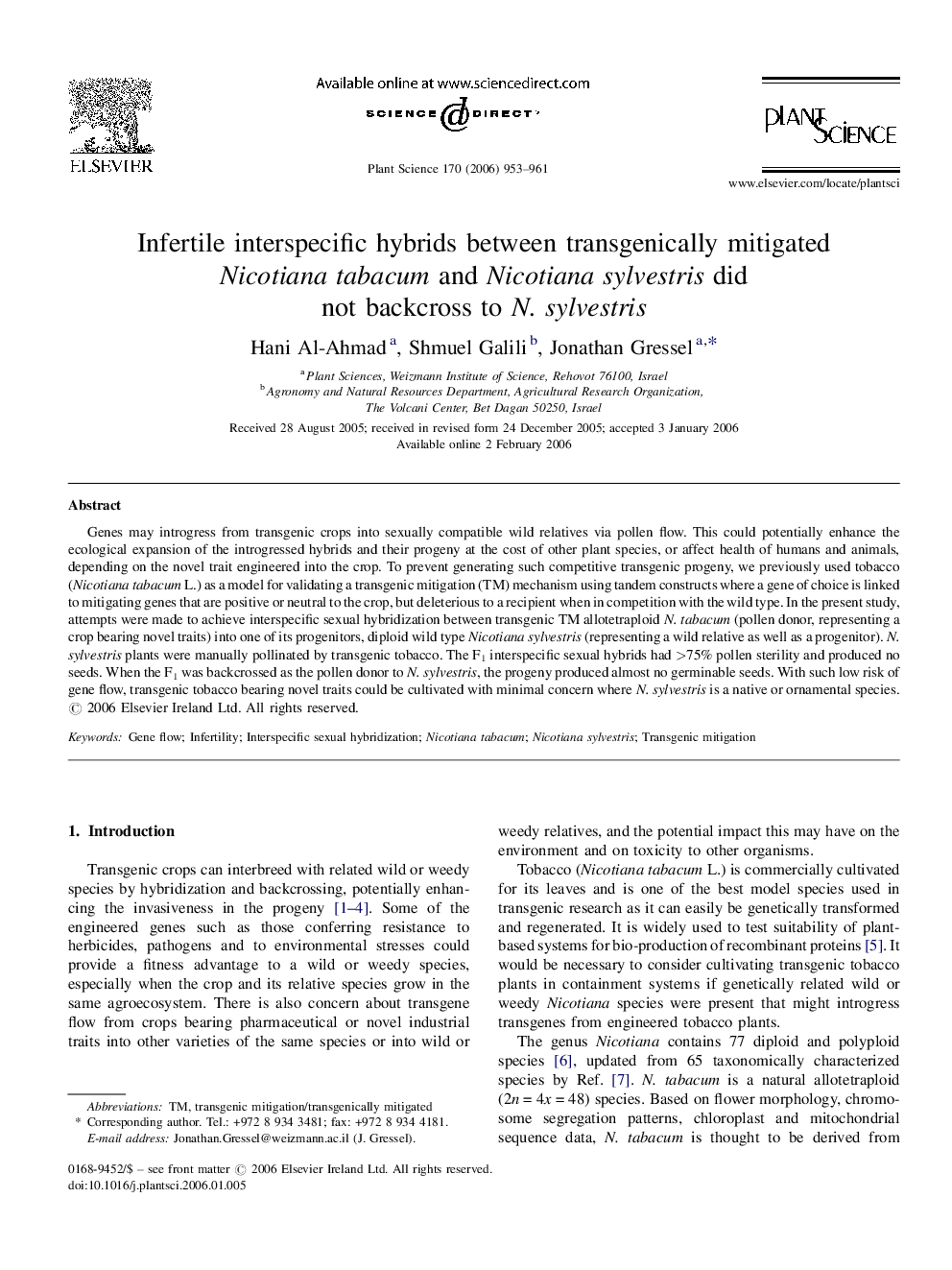| Article ID | Journal | Published Year | Pages | File Type |
|---|---|---|---|---|
| 2018306 | Plant Science | 2006 | 9 Pages |
Genes may introgress from transgenic crops into sexually compatible wild relatives via pollen flow. This could potentially enhance the ecological expansion of the introgressed hybrids and their progeny at the cost of other plant species, or affect health of humans and animals, depending on the novel trait engineered into the crop. To prevent generating such competitive transgenic progeny, we previously used tobacco (Nicotiana tabacum L.) as a model for validating a transgenic mitigation (TM) mechanism using tandem constructs where a gene of choice is linked to mitigating genes that are positive or neutral to the crop, but deleterious to a recipient when in competition with the wild type. In the present study, attempts were made to achieve interspecific sexual hybridization between transgenic TM allotetraploid N. tabacum (pollen donor, representing a crop bearing novel traits) into one of its progenitors, diploid wild type Nicotiana sylvestris (representing a wild relative as well as a progenitor). N. sylvestris plants were manually pollinated by transgenic tobacco. The F1 interspecific sexual hybrids had >75% pollen sterility and produced no seeds. When the F1 was backcrossed as the pollen donor to N. sylvestris, the progeny produced almost no germinable seeds. With such low risk of gene flow, transgenic tobacco bearing novel traits could be cultivated with minimal concern where N. sylvestris is a native or ornamental species.
